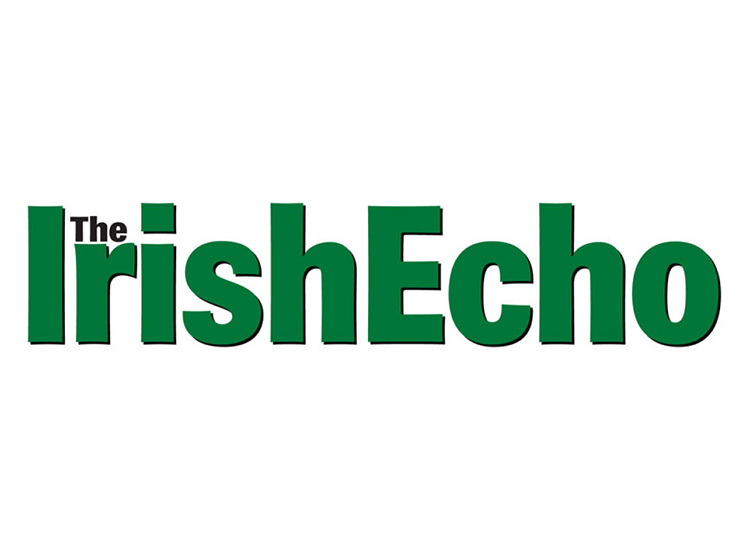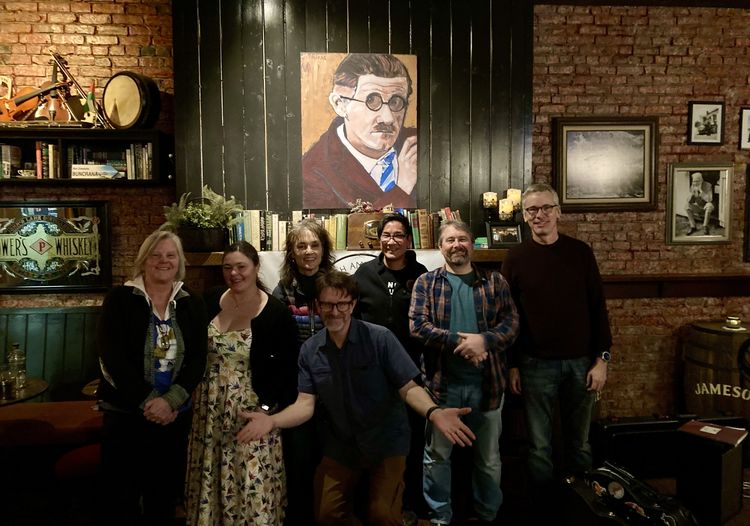[caption id="attachment_71997" align="aligncenter" width="600" caption="Counting ballots after the treaty vote."]
The approval given by Irish voters to the Fiscal Stability Treaty in the referendum on May 31st confirms their historic conservatism.
Like the plebiscite on Ireland's original entry into the Common Market back in May of 1972, Fine Gael, Labour, and Fianna Fáil were in favor, while Sinn Féin opposed.
The original entry was approved almost five to one, while the more recent tally was closer, 60 percent to 40 percent.
But back then, Ireland was well into the economic modernization that followed the abandonment in 1959 of the isolationist self-sufficiency ideal of the de Valera era. A desire for foreign capital and markets was central features to the new perspective.
The vote was also a repudiation of the violent campaign being undertaken by the IRA for Irish unification.
This time, "post-troubles" Sinn Féin - currently sharing power with the Democratic Unionist Party in the governance of a Northern Ireland that remains part of Britain - was catapulted into the leadership of a mixed opposition made of various left-wing groups like the Socialist Party, People before Profits, and other independents.
The basic argument of the "No" side was to oppose the austerity already being applied by the government, which would be copper-fastened by the treaty.
Their solution to Ireland's economic doldrums was more government support for economic development, accompanied by higher taxation of the wealthy. Their definition of the wealthy - those who make more than €70,000 (or $90,000) - is significantly smaller than that of Barack Obama.
It would include a significant portion of the Irish public service, present and retired.
One could imagine the punitive
consequence of such growth policies
on investment in Ireland. It would
also stimulate even greater
emigration.
On the other hand, most of those who voted "Yes" were scarcely convinced that the treaty would guarantee economic stability, never mind recovery. But they did think its rejection would be a step into the unknown.
After all, Ireland has already gone a long way in straightening out its fiscal picture, and that could be endangered by going on its own.
Common sense suggests that if an individual, or a society, is in debt and short of resources, expenses have to be cut down. People have to be satisfied with less and work more in creating wealth - even it means growing one's own vegetables - and allow the development of an atmosphere where capital (including popular savings) can be attracted to investment.
The Celtic Tiger was not the consequence of government indebtedness. It was the result of over lending by unrestrained banks, which stimulated an unneeded construction boom, wage inflation, and government extravagance with revenue garnered from the taxation of those wages, VAT returns from unrestrained spending, and stamp duties from the sale of costly houses.
The political leaders cheered all this on, as they were plied with the refreshments and support of their developer hosts at various tents at important racing fixtures. But then the day of reckoning came!
An analogy I often used in lectures discussing economic recession was that of a hangover after a binge. The traditional and logical solution was to go dry, bear with the consequences, and eventually the body and the head will right itself.
The other solution was to take the tail of the dog that bit you - that is, take a few drinks as a cure. Soon you will be as lively as ever and fell no pain - until the following morning!
How does this common sense apply to European fiscal stability?
One can only hope that the steps being undertaken by the European leaders, whether political or financial, are not simply an effort to push the debts of various countries further back from reckoning.
Even talk of creating an institution like the American Federal Reserve Bank should be looked at with skepticism, as the Federal Reserve Bank is what has facilitated our staggering national debt in the U.S..
In the meantime, the euro continues to depreciate. One will be doing some good to consider a trip to Ireland this summer - not to deposit money, which might end up being worth a lot less if transferred into euros - but to spend it. Ideally, if one has a lot of money, buy or start some enterprise that will give work to those Irish taking the common sense direction away from the Celtic Tiger binge.
Those are the Irish that reflect that natural conservatism earlier mentioned. That is the non-ideological conservatism that reflects respect and reverence for place, ancestry, and tradition, and defers to what has been the way of doing things until the need to change is clearly demonstrated. It is not drawn to novelty simply out of a desire to be fashionable.
While many literary and political commentators delight in picturing the Irish and Irish Americans as steeped in radical politics, the reality is just the opposite. Even when they had been the rank and file of the Democratic Party, it was a party of local community, including church, unlike today's party.
Yes the Irish media suggests that current attitudes in Ireland are scarcely conservative.
This was apparent in the celebration of the 50th anniversary of the Late Late Show on RTE. Various media and entertainment personalities were falling over each other noting their self-importance. The imbibing of liquor on the program provoked condemnation in view of the national problem of serious, especially youthful, binge drinking.
But to get back to the referendum, the "Yes" victory might reflect common-sense conservatism. Admittedly, the Labour Party, which after its great advance in the last general election, has endangered its future role as the leader of the left in an admirable, but politically costly, going along with the austerity program of its senior partner, Fine Gael.
Prognosticators foresee Labour being surpassed by a new left coalition in which Sinn Féin would play a central role. In that scenario, a future election might well see that coalition opposing an amalgamated Fine Gael and Fianna Fáil.








